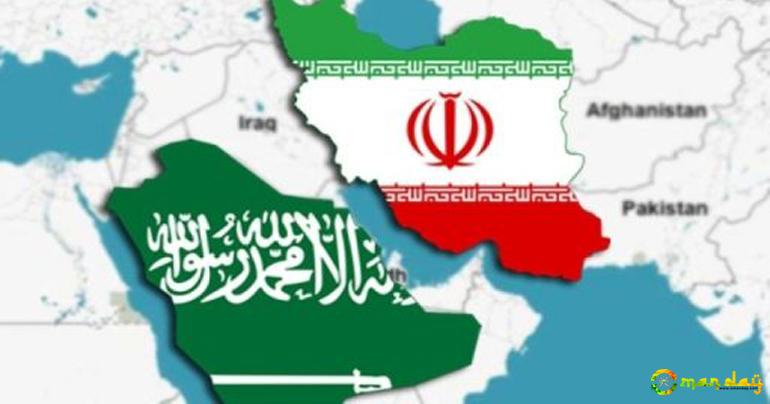Could Saudi Arabia and Iran Really Go to War?
Saudi Arabia and Iran's ongoing battle for power and influence rages on in the Middle East but analysts aren't convinced that an all-out war will happen, yet.
Many neighboring countries have been drawn into the conflict with Qatar, Yemen, Syria and Lebanon becoming proxy battlegrounds in the fight for regional dominance.
Iranians walk past Sejjil (L) and Qadr-H medium range ballistic missiles displayed next to a portrait of Iranian Supreme Leader Ayatollah Ali Khamenei on September 25, 2017, on Baharestan square in Tehran.
Saudi Arabia and Iran's ongoing battle for power and influence rages on in the Middle East but analysts aren't convinced that an all-out war will happen, yet.
Many neighboring countries have been drawn into the conflict with Qatar, Yemen, Syria and Lebanon becoming proxy battlegrounds in the fight for regional dominance.
Relations between Sunni-majority Saudi Arabia and Shia-dominated Iran have deteriorated to a new low recently, particularly over the ongoing civil war in Yemen and the political crisis engulfing Lebanon which has seen its Prime Minister Saad al-Hariri resign over what he called Iranian meddling. This has led to speculation that all-out war could be declared by one or another of the Middle Eastern superpowers.
A source in the Iranian government, who asked to remain anonymous due to the sensitivity of the situation, told CNBC last week that Iran was a "peaceful nation" but that it was prepared for conflict if that was the only option left to it.
"We love peace, we're not looking for war but sometimes you should be prepared for war," the source said.
'Pursuing divisions and creating differences'
At the weekend Saudi Arabia convened its Arab League allies in Cairo for an emergency meeting to discuss what it said were "violations" in the region. The group criticized Iran and its Lebanese Shi'ite ally Hezbollah and also called for a united front to counter Iranian interference, Reuters reported.
"The kingdom will not stand by and will not hesitate to defend its security," Saudi Arabia's Foreign Minister Adel Al-Jubeir told the assembly, according to Reuters, adding, "We must stand together." Iran's foreign minister responded to the meeting by saying Saudi Arabia and its allies were "pursuing divisions and creating differences."
Pat Thaker, regional director for the Middle East and Africa at the Economist Intelligence Unit, told CNBC that against a backdrop of "historic intense rivalry" between the two countries, it "doesn't take much for tensions to flare up."
If there was a conflict between Saudi Arabia and Iran, however, Thaker said "it would be the most dangerous times for the Middle East and the world. But neither Saudi Arabia nor Iran want war." Thaker also characterized the tensions between Saudi Arabia and Iran as a struggle for religious authority in the Middle East, saying that Saudi Arabia was prepared to go to extreme lengths to stop any spread of Iranian influence.
"Saudi Arabia will fight tooth and nail to retain that position as the head of Islam and the Middle East. It will even go to bed with Israel to stop Iran," she said, alluding to the fact that the Jewish state is hardly a natural ally for the Islamic kingdom although they both fear and resent the rise of Iran.
On Sunday, Israel's energy minister confirmed that there had been what he called "covert" contacts between Saudi Arabia and Israel amid concerns over Iran but suggested that Saudi Arabia had wanted to keep "the ties quiet," Reuters reported.
...[ Continue to next page ]
tag: blog , information
Share This Post






